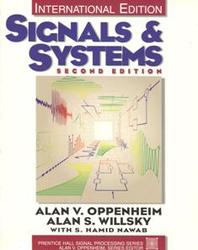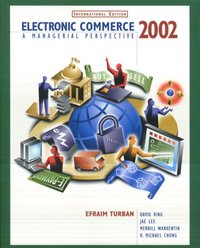Making Win32 Applications Mobile
暫譯: 將 Win32 應用程式移動化
Nancy Nicolaisen
- 出版商: Wiley
- 出版日期: 2002-07-15
- 售價: $1,400
- 貴賓價: 9.8 折 $1,372
- 語言: 英文
- 頁數: 560
- 裝訂: Paperback
- ISBN: 0471216186
- ISBN-13: 9780471216186
下單後立即進貨 (約5~7天)
買這商品的人也買了...
-
 Computer and Robot Vision Volume 1
Computer and Robot Vision Volume 1$3,570$3,392 -
 $931Parallel Computation: Models and Methods
$931Parallel Computation: Models and Methods -
 Signals & Systems, 2/e (IE-Paperback)
Signals & Systems, 2/e (IE-Paperback)$1,250$1,225 -
 $1,029Fundamentals of Data Structures in C
$1,029Fundamentals of Data Structures in C -
 The C Programming Language, 2/e (IE-Paprback)
The C Programming Language, 2/e (IE-Paprback)$640$608 -
 Building Cisco Remote Access Networks
Building Cisco Remote Access Networks$2,380$2,261 -
 Data Mining: Concepts and Techniques
Data Mining: Concepts and Techniques$2,650$2,518 -
 Java Network Programming, 2/e
Java Network Programming, 2/e$1,580$1,501 -
 Building Cisco Multilayer Switched Networks
Building Cisco Multilayer Switched Networks$2,380$2,261 -
 $399Building Scalable Cisco Networks
$399Building Scalable Cisco Networks -
 Programming Win32 Under the API
Programming Win32 Under the API$2,070$1,967 -
 Cisco Voice Over Frame Relay, ATM, and IP (Hardcover)
Cisco Voice Over Frame Relay, ATM, and IP (Hardcover)$2,380$2,261 -
 $1,029Operating System Concepts, 6/e
$1,029Operating System Concepts, 6/e -
 $970Introduction to Algorithms, 2/e
$970Introduction to Algorithms, 2/e -
 Computer Networks and Internets with Internet Applications, 3/e
Computer Networks and Internets with Internet Applications, 3/e$960$912 -
 Professional ADO.NET
Professional ADO.NET$1,920$1,824 -
 Electronic Commerce 2002: A Managerial Perspective, 2/e (IE-Paperback)
Electronic Commerce 2002: A Managerial Perspective, 2/e (IE-Paperback)$820$199 -
 Dreamweaver MX 互動網站百寶箱 for ASP
Dreamweaver MX 互動網站百寶箱 for ASP$580$458 -
 Linux 網路程式設計 ( Linux Socket Programming)
Linux 網路程式設計 ( Linux Socket Programming)$550$435 -
 Win32 API 系統程式實例入門─使用Visual C++.NET實作
Win32 API 系統程式實例入門─使用Visual C++.NET實作$480$374 -
 Windows Server 2003 網路與 IIS 架站指南
Windows Server 2003 網路與 IIS 架站指南$680$537 -
 使用案例寫作實務 - 寫作指南、祕訣與範本 (Writing Effective Use Cases)
使用案例寫作實務 - 寫作指南、祕訣與範本 (Writing Effective Use Cases)$650$514 -
 STRUTS 實作手冊(Struts in Action: Building Web Applications with the Leading Java Framework)
STRUTS 實作手冊(Struts in Action: Building Web Applications with the Leading Java Framework)$690$538 -
 程式設計專家手冊 (The Practice of Programming)
程式設計專家手冊 (The Practice of Programming)$420$332 -
 深入淺出 JBuilder 程式設計實作(JBuilder 9.0/8.0/7.0 適用) (Charlie Calvert's Learn Jbuilder)
深入淺出 JBuilder 程式設計實作(JBuilder 9.0/8.0/7.0 適用) (Charlie Calvert's Learn Jbuilder)$720$562
商品描述
In an increasingly mobile world, millions of developers with Windows
programming experience need to quickly transfer their skills to creating
compact, asynchronous CE applications. This book presents a roadmap to guide
developers through the intricate tasks of porting and reworking Win32
applications to enable them to run efficiently and usefully on Windows CE-based
mobile devices.
* Presents a set of metrics for developers to determine when
and how best to proceed in porting Win32 applications
* Shows developers how
to understand the embedded-system bias inherent in Windows CE and how to write
applications that use this as a strength
* Covers Unicode, which is mandatory
for Windows CE, and explains how to consider the effect of various screen
resolutions
Table of Contents
Acknowledgments.
Introduction.
Part I: Adapting Application Appearance to Windows CE.
Chapter 1: User Interface.
Chapter 2: A Better Approach to Forms.
Chapter 3: Handling Graphical Input and Output.
Chapter 4: Handling Stylus Input.
Chapter 5: The Windows CE Shell.
Part II: Translating Win32 Application Behaviors to Windows CE.
Chapter 6: Writing Memory-Efficient CE Applications.
Chapter 7: Using the Windows CE Registry.
Chapter 8: File Handling, File Access, and Data Portability.
Chapter 9: A CE Database Primer.
Chapter 10: CE Power Conservation Strategies.
Part III: Power Tools.
Chapter 11: Connecting to CE from the Desktop.
Chapter 12: RAPI and Remote Database Access.
Chapter 13: Remote Presentations With RAPI and the HTML Viewer Control.
Appendix A: Converting Help Files.
Appendix B: Debugging and Validation Tools.
Appendix C: Saving Memory by "Duncanizing".
Index.
商品描述(中文翻譯)
在一個日益移動的世界中,數以百萬計的擁有 Windows 編程經驗的開發者需要迅速將他們的技能轉移到創建緊湊的、非同步的 Windows CE 應用程序。本書提供了一個路線圖,指導開發者完成將 Win32 應用程序移植和重構的複雜任務,以使其能夠在基於 Windows CE 的移動設備上高效且有用地運行。
* 提供了一組指標,幫助開發者確定何時以及如何最佳地進行 Win32 應用程序的移植
* 指導開發者理解 Windows CE 中固有的嵌入式系統偏見,以及如何編寫利用這一優勢的應用程序
* 涵蓋了 Windows CE 所必需的 Unicode,並解釋了如何考慮各種螢幕解析度的影響
**目錄**
致謝。
引言。
第一部分:調整應用程序外觀以適應 Windows CE。
第 1 章:用戶界面。
第 2 章:更好的表單處理方法。
第 3 章:處理圖形輸入和輸出。
第 4 章:處理觸控筆輸入。
第 5 章:Windows CE Shell。
第二部分:將 Win32 應用程序行為轉換為 Windows CE。
第 6 章:編寫內存高效的 CE 應用程序。
第 7 章:使用 Windows CE 註冊表。
第 8 章:文件處理、文件訪問和數據可攜性。
第 9 章:CE 數據庫入門。
第 10 章:CE 節能策略。
第三部分:強大工具。
第 11 章:從桌面連接到 CE。
第 12 章:RAPI 和遠程數據庫訪問。
第 13 章:使用 RAPI 和 HTML 查看器控件進行遠程演示。
附錄 A:轉換幫助文件。
附錄 B:調試和驗證工具。
附錄 C:通過「Duncanizing」節省內存。
索引。











